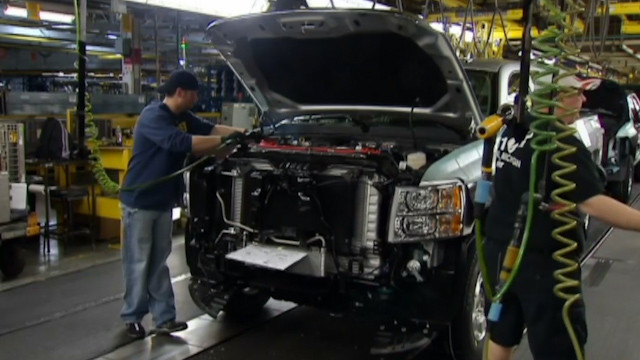US economy fears slowdown after downturn in analysts' expectations for April

The US workforce created less jobs than expected in April, a report from the Department of Labor showed on Friday (6 May), adding to worries the world's largest economy is slowing down.
Official data showed 160,000 jobs were created in April, compared with analysts' expectations for a figure in the 202,000 region. The unemployment rate remained unchanged at 5%, while the figures for February and March were both revised down to show the US economy added a combined 19,000 jobs less than originally thought.
The employment report for April was the weakest in seven months as the number of jobs created fell comfortably below the 12-month average of 232,000 jobs. The figure prompted speculations the world's largest economy might be slowing down, after the Department of Commerce said last week the US economy grew at its slowest pace in two years in the first quarter of 2016.
However, analysts suggested the jobs report was not as bad as some feared and could in fact represent only a momentary blip.
"Employment was never going to continue rising at more than 200,000 a month indefinitely," said Paul Ashworth, chief US economist at Capital Economics.
"Those monthly gains are simply unsustainable in an economy with a potential economic growth rate of less than 2%."
Meanwhile, US labour participation fell from 63% in March to 62.8% last month and average wages rose 0.3% to to $25.53 an hour. Hourly pay climbed 2.5% in the past 12 months, up from 2.3%, which analysts believe is a sign of a tighter labour market, in which an increasing number of firms struggle to find suitably skilled workers.
On Wednesday (4 May), data released from the payroll company ADP showed the US private sector added only 156,000 jobs last month, compared with analysts' expectations for a 195,000 figure.
However, economists believe the two disappointing jobs report will have little impact on the Federal Reserve's position. The US central bank was initially expected to raise interest rates next month, even though some suggested the rate hike will be postponed until September.
"This report is not going to change the mind of anyone at the Fed who wasn't already keen to hike in June," said analysts at Pantheon Macroeconomics, indicating the Fed is likely to adopt a cautious approach.
"They are the minority, so we're sticking to our view that the next hike will come in September."
Ashworth, however, insisted a rate hike in June remained on the cards, although it was no longer as straightforward a process as it seemed over the last few months.
"There is nothing here [in the jobs report] to swing the Fed's June rate decision very far in either direction," he said. "We still think the Fed will hike next month, but it's shaping up to be a close call."
© Copyright IBTimes 2025. All rights reserved.






















